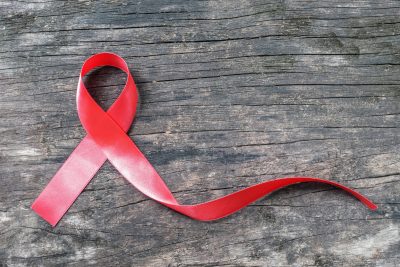
The Institute for Collaboration on Health, Intervention, and Policy is the nexus for health research at UConn.
InCHIP-affiliated faculty and students work across many health domains, tackling issues that impact human health from a multitude of analytic lenses and approaches. Together they work toward a shared goal of improving human health and well-being.
The future of health behavior change research is in innovative, advanced methodologies that harness technology and prioritize equity, diversity, and inclusion to prevent and treat chronic diseases.
InCHIP’s scientific wheelhouse lies in the behavioral and social health sciences, with existing or emerging strengths in several key health domains (e.g., food/nutrition policy and obesity, global health, HIV, school and child health, substance use, emotional well-being), cross-cutting issues (e.g., intersectionality, self-regulation, health equity, social drivers of health), and methodologies (e.g., advanced quantitative methods, community-based participatory research, meta-analyses, mHealth and social media, qualitative research, randomized controlled trials, mixed methods).
Project Highlights
With 122 active InCHIP PIs, it is nearly impossible to showcase all the exciting research going on. Below is a brief overview of some of the recently funded projects currently being undertaken by our PIs.

HIV Prevention
Pablo Kokay Valente, assistant professor of Allied Health Sciences, co-authored a study analyzing the preferences for taking PrEP among young men who have sex with men. The study found that participants preferred daily oral PrEP over other forms.
Learn More
Addressing Health Disparities
Cristina Colón-Semenza, assistant professor of Kinesiology, is working on several projects aimed at reaching Hispanic people with Parkinson's disease across the United States. Although Hispanic populations have the highest incidence of Parkinson's compared to other ethnic groups in the U.S., the existing research has been conducted with predominantly white, highly educated individuals.
Learn More
Weight Management
Amy Gorin, professor of Psychological Sciences, and Tricia Leahey, professor of Allied Health Sciences, published a study that analyzes how characteristics of "grit" and self-control are associated with weight loss and weight maintenance among couples.
Learn More
Improving Food Security
Caitlin Caspi, associate professor of Allied Health Sciences, and Kim Gans, professor of Human Development and Family Sciences, are leading a study to evaluate the effectiveness of new programming that Meals on Wheels Rhode Island is implementing. Caspi and Gans received a $2.89 million grant from the Department of Health and Human Services Administration for Community Living.
Learn More
Developing Child-Friendly Interventions
Sudha Srinivasan, assistant professor of Kinesiology, is analyzing the feasibility and effectiveness of joystick-operated, ride-on-toy training to improve arm use in children diagnosed with cerebral palsy. This intervention could help families overcome barriers to treatment while keeping children engaged in therapeutic programming.
Learn More
InCHIP Centers
UConn Center for mHealth and Social Media
The Center for mHealth and Social Media (CHASM) advances the science of digital health by applying existing and developing novel digital technologies to the study of health promotion through research and intervention.
UConn Rudd Center for Food Policy and Health
The Rudd Center for Food Policy and Health is dedicated to promoting solutions to childhood obesity, poor diet, and weight bias through research and policy.
Collaboratory on School and Child Health
The Collaboratory on School and Child Health (CSCH) facilitates innovative and impactful connections across research, policy, and practice arenas to advance equity in school and child health. CSCH is committed to anti-racist work that prioritizes inclusion, reduces disparities, and creates systemic change
UConn Center for Advancing Research, Methods, and Scholarship in Gun Injury Prevention
The UConn Center for Advancing Research, Methods, and Scholarship in Gun Injury Prevention (ARMS) is an interdisciplinary research initiative that advances UConn’s institutional capacity to conduct high quality gun injury and violence prevention policy (GVP) scholarship.
InCHIP Funded Projects
InCHIP hosts annual seed grant competitions for faculty pilot projects. Listed below are the projects funded during the 2023-2024 fiscal year.
Seed Grants in Health Equity, Human Rights, and Social Justice Approaches to Health
Offered in partnership with UConn's Gladstein Family Human Rights Institute, this need opportunity awarded $20,000 for one project rooted in the area of social justice, human rights, and health equity.
- Ryan Talbert, PhD, (Sociology), and Raja Staggers-Hakim, PhD, (Sociology) for “Mental Health among Black Americans and the Local Commemoration of Anti-Black Violence, Black Figures, and the Black Freedom Struggle”
InCHIP Faculty Seed Grants
- Swapna Gokhale, PhD, (School of Computing) for “Understanding Associations Between Health Risk Behaviors and Social Deprivation Measures Using Machine Learning”
- Daniele Piscitelli, PT, PhD, (Kinesiology) for “Neuromodulation for Upper Limb Recovery Post-Stroke: A Proposal for Personalized H-Reflex Conditioning”
- Roman Shretha, PhD, MPH, (Allied Health Sciences) for “Mobile-Based Ecological Momentary Assessment for Predicting Short-Term Suicidal Thoughts and Behavior among Gay, Bisexual, and Other Men Who Have Sex with Men”
- Ruth Lucas, PhD, RNC, (School of Nursing) and Shayna Cunningham, PhD, (Public Health Sciences) for “WIC Partnership to Revise and Expand Pain Self-Management Intervention with Breastfeeding Women”
Community-Engaged Health Research Seed Grants
- Mia Maltz, PhD, (Plant Science and Landscape Architecture) for “Coupling Indoor and Outdoor Air Quality with Exposure, Health Effects and Indoor/Outdoor Environmental Microbiomes”
- Eileen Carter, PhD, RN, (School of Nursing) for “Evaluating the Accesptability of School-Based Health Centers to Increase Children's Access to Penicillin Allergy Evaluations”
- Megan O'Grady, PhD, (Public Health Sciences) for “Identifying Barriers and Facilitators to Implementation of Long-Acting Injectable Medications for Opioid Use Disorder in Community-Based Behavioral Health Clinics (CCBHCs)”
Environmental Health Seed Grants
- Chuanrong (Cindy) Zhang, PhD, (Geography, Sustainability, Community, and Urban Studies) for “Testing a Model of the Impact of Climate Change on Health Behaviors: A Cross-Sectional Proof-of-Concept Study”
Health Disparities and Chronic Diseases Networking Event Seed Grant
- Zexin (Marsha) Ma, PhD, (Communication) and Yoo Min Park, PhD, (Geography, Sustainability, Community, and Urban Studies) for “Promoting Awareness of Air Pollution among Latino/Hispanic Communities Using Low-Cost Mobile Air Sensors and Culturally Tailored Health Messages”








